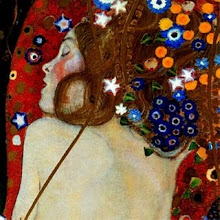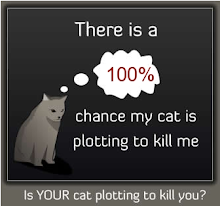First up this morning is a link for the film "What is Organic about Organic?" which I received earlier from La comtesse révisée. Cette comtesse is keeping her eyes wide open for treasures and found the trailer for the film over at Feministing. (Les Comtesses are very feminist in their philosophy, 'tis true.) This film looks like a must see and I want to see if I can put together a group of interested people for a screening here where I live. Maybe Le Chef son will attend. C'est bien! It definitely looks like a film all of us should see. Merci ma chère!!
And as mentioned in one of my posts a while back, oil-soaked birds do not fare well even after they have been meticulously cleaned. The damage seems to be irreparable from the moment they have been in contact with the oil. Jane found this article in today's NY Times quoting studies from UC Davis that show that not only do oiled birds do not recover well (less than ten percent survive), they do not breed if they survive. They are, sadly, lost...
Dying Shore Bird (Image credit: Associated Press)
Some believe that the best efforts are to be made remediated oil damaged habitats. Which is exactly what Jen was doing. It is still just such a heartbreaking situation. Perhaps euthanasia is better. Personally, I can't envision not attempting to save an oiled bird. But it's a hard situation.
And finally, on a somewhat more promising note, Thelma Lee found this excellent resource for those interested in helping bees and our environment. The Great Sunflower Project is operated by San Francisco State University. They invite you to join the hunt for bees, and to plant for bees. You can join the 50,000 participants counting urban and suburban garden bees for The Great Sunflower Project. Everything you need to participate is right there on their link. Being bee friendly (and here) is important to our agriculture and environment. Even solitary bees, which I'm working up a post on, are important. Without bees fertilizing our crops, where will we bee, um I mean, be? You can grow sunflowers and help encourages bees then count the number of bees in your garden. Some gardens didn't have a single bee in their fifteen minute surveys. That's a very bad thing. Help measure how much work your community might need to do to encourage and help sustain the bee population. Plant the seeds and count bees!

Photograph by Jozsef Szentpeteri for National Geographic
Edited to add:
Readers interested in contributing to bird rescue organizations and the reasons why there should still be hope are directed to Uzza's comprehensive post:























I also was shocked and horrified by that pronouncement on oiled birds. That's why I was releived to find this article, which shows why things aren't as bad as she says, There's still hope.
ReplyDeleteUzza, thanks for the very hope affirming link. I've contemplated listing Tri-State over on my link list actually, since they've been one of the lead teams on the cleanup efforts with the pelicans. I'm editing THIS post to direct readers to YOUR post. :)
ReplyDelete